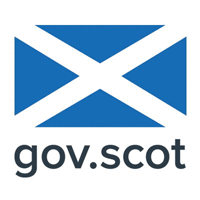Improved monitors to reduce the risk of further strokes.
New investment in mobile heart-rate monitors could help prevent nearly 700 secondary strokes over the next five years, potentially preventing more than 300 deaths in Scotland.
Scottish Government funding of £1.9 million will support the deployment of Ambulatory Electrocardiogram (ECG) patch monitors for around 8,000 recent stroke patients each year. These small and easy-to-use chest patches will replace the larger and more cumbersome models currently in use. As well as being more practical, they provide more accurate readings to allow doctors to make faster and more effective decisions about follow-on treatment.
A research paper found that over the next five years, use of the patches in NHS Scotland could prevent 689 secondary strokes and 319 deaths, while also freeing up the equivalent of 15.7 full-time cardiac physiologists for other vital services. Cost-savings for the NHS could amount to £14.6 million in the same period.
The compact, wireless, and water-resistant devices are worn on the skin for up to 14 days to detect rhythm abnormalities in the heart, particularly atrial fibrillation – a leading cause of stroke. The ECG patch monitors are expected to be four times more effective at detecting atrial fibrillation than current methods, reducing diagnosis and treatment times from up to 24 months to just three weeks.
Patients will also benefit from reduced travel, as patches can be applied during diagnosis or conveniently posted to their homes. Standardised access across Scotland will help eliminate regional disparities in diagnosis and treatment.
Health Secretary Neil Gray said:
“The Scottish Government is clear that innovation will play a key role in reforming Scotland’s health service, and ensuring it remains able to meet the health challenges of a changing world. Projects such as this one are vital to improving patient outcomes, saving lives and enabling the NHS to treat people quicker and more effectively.
“This investment in innovative technology will make a real difference to the lives of thousands of stroke patients across Scotland. By accelerating diagnosis and treatment, we can help prevent recurrent strokes and improve health outcomes. The use of these new patch monitors is a fantastic example of how we are adopting cutting-edge solutions to renew Scotland’s NHS and ensure it can continue to deliver high-quality, efficient care.”
Katie Cuthbertson, National Director for the Centre for Sustainable Delivery, said:
“Through the Accelerated National Innovation Adoption (ANIA) pathway, we are rapidly scaling technologies that have the power to transform lives. The rollout of ECG Patch Monitors is a prime example of how innovation can drive better outcomes across the NHS.
“By detecting atrial fibrillation earlier and more accurately, we are not only preventing recurrent strokes but also freeing up vital clinical capacity to support other cardiac services. This is innovation with impact, delivered at pace and scale.”
Professor Jann Gardner, Chief Executive of NHSGGC, said:
“At NHS Greater Glasgow and Clyde, we are proud to be at the forefront of using technology to improve patient care. The ECG patch programme is a powerful example of how innovation can enhance diagnosis, reduce waiting times, and ultimately lead to better outcomes for patients.
“We’re pleased that this work is now being adopted nationally, and we remain committed to leading the way in delivering smarter, more effective healthcare.”
NHSGGC Consultant Cardiologist and ANIA Clinical Lead for the CfSD Dr Faheem Ahmad, who is also Cardiology Innovation Lead for the West of Scotland Innovation Hub, has worked directly with patients using the ECG patch.
“The introduction of the ECG patch has been a game-changer for both patients and clinicians.
“We’re now able to diagnose atrial fibrillation more quickly and accurately, which means we can start treatment sooner and reduce the risk of serious complications like stroke. The patches can be worn just like a plaster, and in comparison to the older, traditional Holter devices, they are more comfortable and easier for patients to use.
Background
Healthcare Improvement Scotland advice on ECG patch monitors
Scottish stroke improvement programme
National Innovation Week
This initiative is a key component of the Scottish Government’s NHS renewal strategy, delivered through the Accelerated National Innovation Adoption (ANIA) pathway. This was proposed through Scotland Innovates, which provides a streamlined route for industry partners to propose new technologies for adoption by the NHS.
A 12-month phased rollout across Scotland is scheduled to begin in November 2026 of the ECG Patch Monitors.
This initiative is a key component of the Scottish Government’s NHS renewal strategy, delivered through the Accelerated National Innovation Adoption (ANIA) pathway, led by NHS Golden Jubilee’s national Centre for Sustainable Delivery based at NHS Golden Jubilee.
